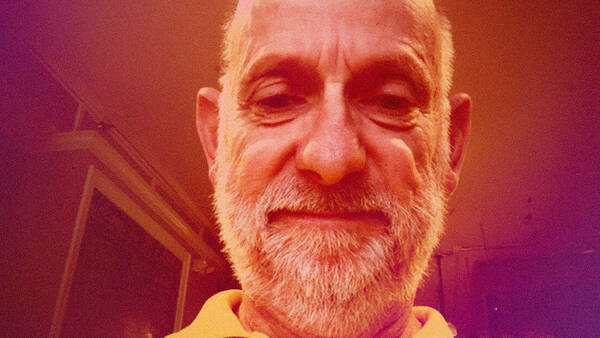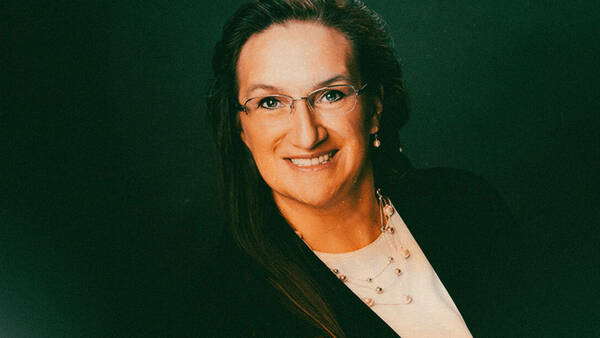Alex Montoya ’96 was born without arms or a right leg, but he doesn’t spend a lot of time lamenting what he doesn’t have. Instead, he focuses on what he does have: three prosthetic limbs that help him live a mobile, independent life, and a platform to help others by sharing his story.
“My whole belief and my whole purpose is to show people not to take for granted the life that we have. Most people that I encounter have two arms and two legs, and I honestly think that we get so caught up in our deadlines, responsibilities, issues, and challenges that we sometimes don’t stop to think that not all of us have that: two functioning arms and legs,” Montoya says. “Me being in the position of wearing three prosthetics, I look at people who are in wheelchairs and need help getting out of bed in the morning and think about how good I have it. We need to pause and thank God for the little things, things that we probably don’t give a second thought to every day.”
Montoya was born in Colombia, his disabilities a side effect of the drug thalidomide, which was used to treat nausea in pregnant women before it was found to cause birth defects. He came to the United States at age 4 to receive prosthetics at the Shriners Hospital for Children in San Francisco and Los Angeles, staying with his aunt and uncle. Later, he went on to attend Notre Dame, earn a master’s degree at the University of San Francisco, and work on the corporate side of Major League Baseball for a decade. Today, he is a sought-after motivational speaker and author, and has shared his story nationwide, speaking at the likes of Google, NASA, and Harvard, focusing on overcoming adversity and living an inspired life.
Montoya, who worked for his hometown baseball team, the San Diego Padres, had always done public and motivational speaking as a side gig, but decided to pursue it full time in 2015. He says he saw it as his way to do something positive for the world.
“I felt like it was what I was called to do,” he says. “I had been doing enough on the side as a passion project that I decided I wanted to try it full time, partially because I wanted to get better at it by devoting more time to it, and because I saw that’s what the world needed. We live in a very divisive world right now, and I felt like the world needed a little inspiration to remind people of what their true purpose and calling is. I have my physical adversity and disability, and those are my challenges that I live with daily, but everyone I know has something they are carrying with them—whether it is physical, mental, emotional, financial, you name it—everybody has something that is challenging, and I wanted to break through that and take a stab at making the world a better place.”
So A-MOtivational Communications was born, offering motivational literature and presentations and coaching on writing and public speaking. Monotoya’s clients include schools (from the university level all the way down to kindergarten classes), corporate groups, nonprofit organizations, and churches.
All of his talks include a component of disability awareness: showing how his prosthetics work and how they help him in his daily life. He uses two prosthetic arms that connect to his shoulder and have an elbow joint, with hooks on the end that have a grasping mechanism. His right leg is a prosthetic that fits onto his thigh, with a hinge knee joint. It took about three years of physical therapy to learn how to use each of these limbs most effectively, but he says that he reached a point where the prosthetics became a part of him. For instance, he uses his left prosthetic to take the back end of a pen and type utilizing a hunt-and-peck style. Montoya says that while some people look at his three prosthetic limbs and feel pity, for him, the prosthetics represent freedom.
“If I don’t have them, I can’t get around. I couldn’t have gone to Notre Dame or carried the Olympic Torch in ’96” he says. “I can’t write books or give speeches without them. My work shows other people that they have the same opportunity in their lives to be liberated—they just have to think the right way.”
For Montoya, thinking the right way means not letting challenges or supposed limitations hold you back. He tailors each of his speeches to the unique audience, but that is the overarching theme of everything he does, whether it is encouraging nonprofit employees in fundraising or motivating salespeople to make more sales.
Fittingly, his most recent—and fifth—book is called Living Inspired. He says it is his call for people to focus on the things in life that inspire them and use that to live life in a way that inspires others. His own inspiration for the book is his late father, Hernan, who filled their house with music every day. The music inspired Hernan and enabled him to live life with a reputation for being “gregarious and jovial,” according to his son. Montoya hopes his book can show others the key to living a joyful, inspired life, no matter the challenges people confront.
“At the end of my life, God’s not going to look at me and say, ‘You’re the one who was born without this or that.’ He’s going to ask, ‘What did you do with the things I gave you?’” he says. “I want to challenge people to figure out how they can make the most of what they have, be inspired by that, and hopefully inspire other people.”



